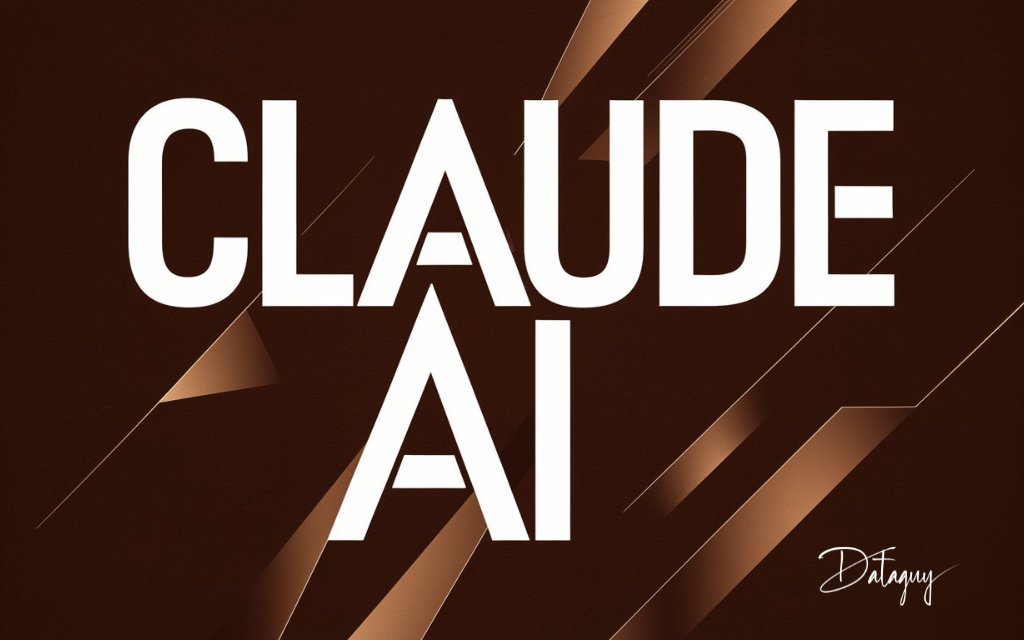Insights Index
ToggleClaude AI: The Next Generation of Ethical and Powerful Language Models
Introduction
In an era where artificial intelligence (AI) is reshaping our world, one name stands out for its remarkable blend of power and ethics: Claude AI. Developed by Anthropic, a pioneering AI research company based in San Francisco, Claude represents a new frontier in language models.
This isn’t just another chatbot; it’s a family of AI models designed to transform how we interact with technology, process information, and solve complex problems. From its inception in 2023 to the groundbreaking Claude 3 family released in 2024, Claude AI has consistently pushed the boundaries of what’s possible in AI while maintaining a steadfast commitment to ethical operations.
In this article, we’ll delve into the world of Claude AI, exploring its capabilities, ethical framework, and the myriad ways it’s poised to revolutionize industries from customer service to scientific research.
The Evolution of Claude AI
Claude AI has seen significant improvements since its inception. The latest iteration, the Claude 3 family, released in March 2024, comprises three distinct models:
Claude 3 Opus: The most intelligent model, excelling in complex tasks with remarkable fluency and human-like understanding, pushing the boundaries of generative AI (GenAI).
Claude 3 Sonnet: Strikes a balance between intelligence and speed, ideal for enterprise tasks with strong performance, lower cost, and high endurance in large-scale deployments.
Claude 3 Haiku: The fastest and most compact model, providing near-instant responsiveness for simple queries and requests, enabling seamless AI experiences mimicking human interactions.
What Makes Claude AI Truly Remarkable
Claude AI combines advanced capabilities with ethical considerations:
- High Token Limits: With the ability to process up to 200,000 tokens, Claude can handle extensive documents and maintain context over long conversations.
- Improved Accuracy: The Claude 3 family, particularly Opus, shows significant improvements in factual accuracy and reduced hallucinations compared to its predecessors.
- Multilingual Proficiency: Enhanced performance in text manipulation tasks across various languages.
- Advanced Vision Capabilities: Ability to process and analyze a wide range of visual formats, including photos, charts, and technical diagrams.
- Ethical Framework: Built on Anthropic’s Constitutional AI approach, ensuring helpful and harmless interactions.
Table: Claude 3 Models Comparison
| Feature | Claude 3 Haiku | Claude 3 Sonnet | Claude 3 Opus |
|---|---|---|---|
| Capability | Low | Medium | High |
| Speed | Fastest | Fast | Moderate |
| Cost | Lowest | Lower | Highest |
| Use Cases | Simple tasks, quick responses | Everyday tasks, moderate complexity | Demanding tasks, complex analysis |
The Ethical Foundation of Claude AI
At the heart of Claude’s design is a robust ethical framework. Anthropic’s Constitutional AI approach embeds ethical principles directly into the model’s operational parameters. This ensures that
Claude adheres to key principles such as:
- Non-maleficence: Avoiding harmful or misleading responses
- Autonomy: Respecting user privacy and data protection
- Justice: Ensuring fairness and avoiding biases
- Transparency: Being open about capabilities and limitations
This ethical foundation not only protects users but also enhances the overall reliability and trustworthiness of the AI’s outputs.
Real-World Applications of Claude AI
The versatility of Claude AI opens up a wide range of applications across various industries:
- Customer Support: Claude’s context retention and fast response times make it ideal for enhancing customer service chatbots.
- Content Moderation: Its ethical AI focus and safety features make it an excellent tool for moderating user-generated content and maintaining safe online environments.
- Data Analysis: Claude excels in processing large datasets, translating documents, and assisting with complex analytical tasks.
- Creative Writing: The model’s advanced language understanding capabilities make it a valuable asset for content creators and authors.
- Education: Claude’s user-friendly interface and ethical approach make it suitable for creating interactive learning experiences and providing personalized feedback to students.
- Research and Development: The most advanced models in the Claude 3 family can assist with complex tasks like financial modeling, drug discovery, and strategic analysis.
Conclusion
As we look to the future, Claude AI stands as a testament to the incredible potential of ethical, powerful artificial intelligence. Its journey from the initial release in 2023 to the sophisticated Claude 3 family demonstrates rapid progress in AI capabilities, all while maintaining a crucial focus on responsible development.
The balance Claude strikes between advanced features like high token limits and multilingual proficiency, and its unwavering commitment to ethical behavior, sets a new standard in the AI industry.
Yet, as impressive as Claude AI is, it’s important to remember that it’s a tool designed to augment human intelligence, not replace it. Its limitations, such as the lack of real-time information access, remind us of the continuing importance of human oversight and critical thinking.
As Claude AI continues to evolve, it promises to unlock new possibilities across countless fields, from enhancing customer experiences to accelerating scientific breakthroughs.
By embracing this technology responsibly, we can harness its power to address some of our most pressing challenges, foster innovation, and create a future where AI and human intelligence work in harmony. The story of Claude AI is far from over – in many ways, it’s just beginning.
As we stand on the brink of this AI revolution, one thing is clear: with models like Claude leading the way, the future of AI looks not just intelligent, but also ethical, responsible, and profoundly human-centric.

